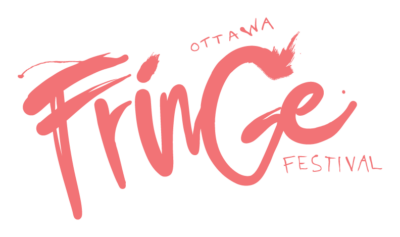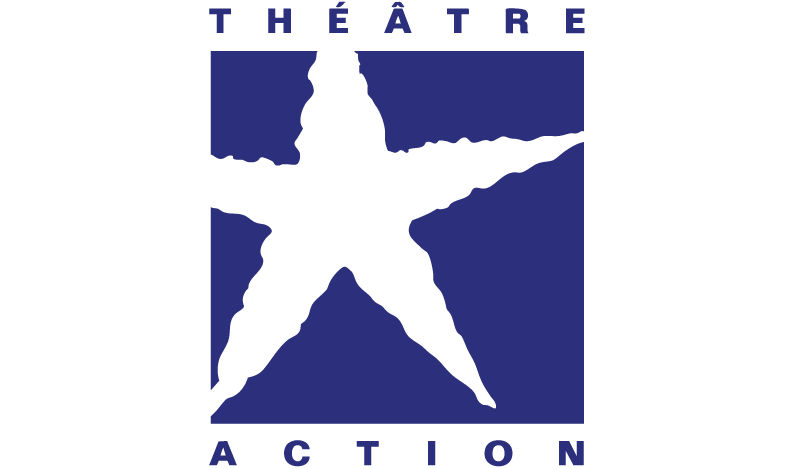Interview with Peter Hayes and Greg Landucci
 I’ve suggested that a good photo with both Peter and Greg in the shot lies just down the street in an alleyway. I’ve also suggested that it would be a good shot if both Peter and Greg were in it together, and I can interview them together. It’s not because we’re running behind on our schedule of interviews, not at all. It just looks better that way. As we talk, I’ve got the recorder running. Tonight at the Montreal Fringe, the out-of-towners will be participating in “One Minutes Madness,” an opportunity to promote their shows.
I’ve suggested that a good photo with both Peter and Greg in the shot lies just down the street in an alleyway. I’ve also suggested that it would be a good shot if both Peter and Greg were in it together, and I can interview them together. It’s not because we’re running behind on our schedule of interviews, not at all. It just looks better that way. As we talk, I’ve got the recorder running. Tonight at the Montreal Fringe, the out-of-towners will be participating in “One Minutes Madness,” an opportunity to promote their shows.
“For the first couple of festivals I didn’t do any previews,” says Greg Landucci, “because I didn’t want to make myself look stupid before people paid to see me look stupid. But now I’ve started using one part of my play that does kind of work, that I can do for a minute.” Peter Hayes agrees, adding, “It works best for comedy.”
When I ask Peter how long he has been doing fringe festivals, his answer of twenty years makes us all give pause. Greg: “You’ve done the Fringe for 20 years?” Peter: “Not in Canada, but in South Africa, Australia, Germany.” I ask him if he always acts, and what motivates him. “I write and direct as well, so it really varies. Our company has a couple of shows in rep. Next year I’ll be directing, not performing. [The Tricky Part] I’ve been doing for two years, and this is kind of the end of it – touring Canada for three months. It’s always exciting to travel with your work and see it in a different context. In South Africa our lives are kind of heavy on a daily basis, there’s a deep fatigue, and it feels a lot different to me here. People’s lives here are lighter, and they’re more able to engage in a serious play.”
 Where Peter Hayes is an old hand with fringing, Greg Landucci is just getting started. “This is my third summer, and it’s only been Dishpig. My first and only show until Mr. Fox. I’m much more worried about Mr. Fox than I ever was about Dishpig. Dishpig was TJ Dawe’s idea, he was the driving force, I just had to be along for the ride. And it went really well. Whereas Mr. Fox is really my play. I’ve just performed it in Orlando; it got off to a bit of a slow start but by the end it had gotten into a really good groove.”
Where Peter Hayes is an old hand with fringing, Greg Landucci is just getting started. “This is my third summer, and it’s only been Dishpig. My first and only show until Mr. Fox. I’m much more worried about Mr. Fox than I ever was about Dishpig. Dishpig was TJ Dawe’s idea, he was the driving force, I just had to be along for the ride. And it went really well. Whereas Mr. Fox is really my play. I’ve just performed it in Orlando; it got off to a bit of a slow start but by the end it had gotten into a really good groove.”
I ask them to tell me about their shows. Peter: “The Tricky Part is a true story, about one of those childhood experiences that we think of as damaging but that shapes us into the adults we become. It’s a very beautiful and incredibly well-written text. It’s a decided advantage to start with a quality text. Martin [Moran] started writing an autobiography, and he started doing readings from it, and people suggested he change it into a play; he is an actor himself. So he started from about five years ago.”
Greg: “Mr. Fox is also an incredibly beautiful text. Written by me. Decided advantage. It’s a story of a young man who dreams of being in radio, he goes to radio broadcasting school. He starts working at SeaFox radio in Vancouver, his favourite station, and they give him a job as the mascot, and it turns out that he is the best mascot they ever had. He is a pretty incredible mascot. And he rises in the world of mascotting, but he doesn’t seem to be able to rise in the world of radio. So there’s this conflict. It’s a comedy.”
The inspiration for Mr. Fox? “It is very autobiographical. I was Mr. Fox for a year, I wanted to be in radio, and I was the best mascot SeaFox ever had. Arguably, I mean, but it is talked about. People have said that to my face. It’s the one thing I’m willing to brag about.”
Peter: “They changed stations for you.”
 Greg: “I’ve been telling Fox stories to my friends for years. It’s just taking those stories and wedging them, mashing them, into a show.”
Greg: “I’ve been telling Fox stories to my friends for years. It’s just taking those stories and wedging them, mashing them, into a show.”
Peter tells me about the international differences in fringing. “Financially, the way it’s set up here is incredibly generous. In South Africa, you lose up to 40% of your door ticket price. You pay a registration fee and they take a percentage of your sales. That’s one way, I think the whole volunteer system, it does mean you’ve always got comps in your audience but they’re people that are there because they’re passionate about theatre, so it means they’re a good audience – they’re going to talk about your show, they’re at the front lines, they’re people that you want to have talking about your show. In South Africa, a lot of the ticket sellers are people who are unemployed for a lot of the year, particularly with our main festival, there are a lot of black people from the townships surrounding the festival. It’s not a model that we could duplicate there because of third world realities. Little things like because you’ve paid 100% of your door, you’re not contracted to work so your visa requirements and equity requirements change. It’s been really well thought through to support an international artist coming here.”
Greg’s experience is more cross-border than trans-Atlantic. “I’ve been to Orlando twice. I’ve crossed the border. You’re probably talking to the wrong guy. Orlando is the biggest fringe in the States, and Orlando has quite a gay local acting scene. So that’s a lot of fun. A lot of the shows you go see down there, there are fifteen people in the show, most of them are nude, wild colours, and dancing, singing… So to actually show up with a one-man show and just stand and talk is quite risqué. It’s a phenomenal opportunity to do your own work. The volunteers, that’s incredible. Even in the billeting system, living free in someone’s home, the whole community is bending over backwards to allow the artist to get paid. The generosity is very special. It’s quite humbling to see how many people have to work for free in order for an artist to get paid.”
The Tricky Part can be seen at the Academic Hall, June 22-29. Mr. Fox can be seen in the Arts Court Library, June 22-29.




























